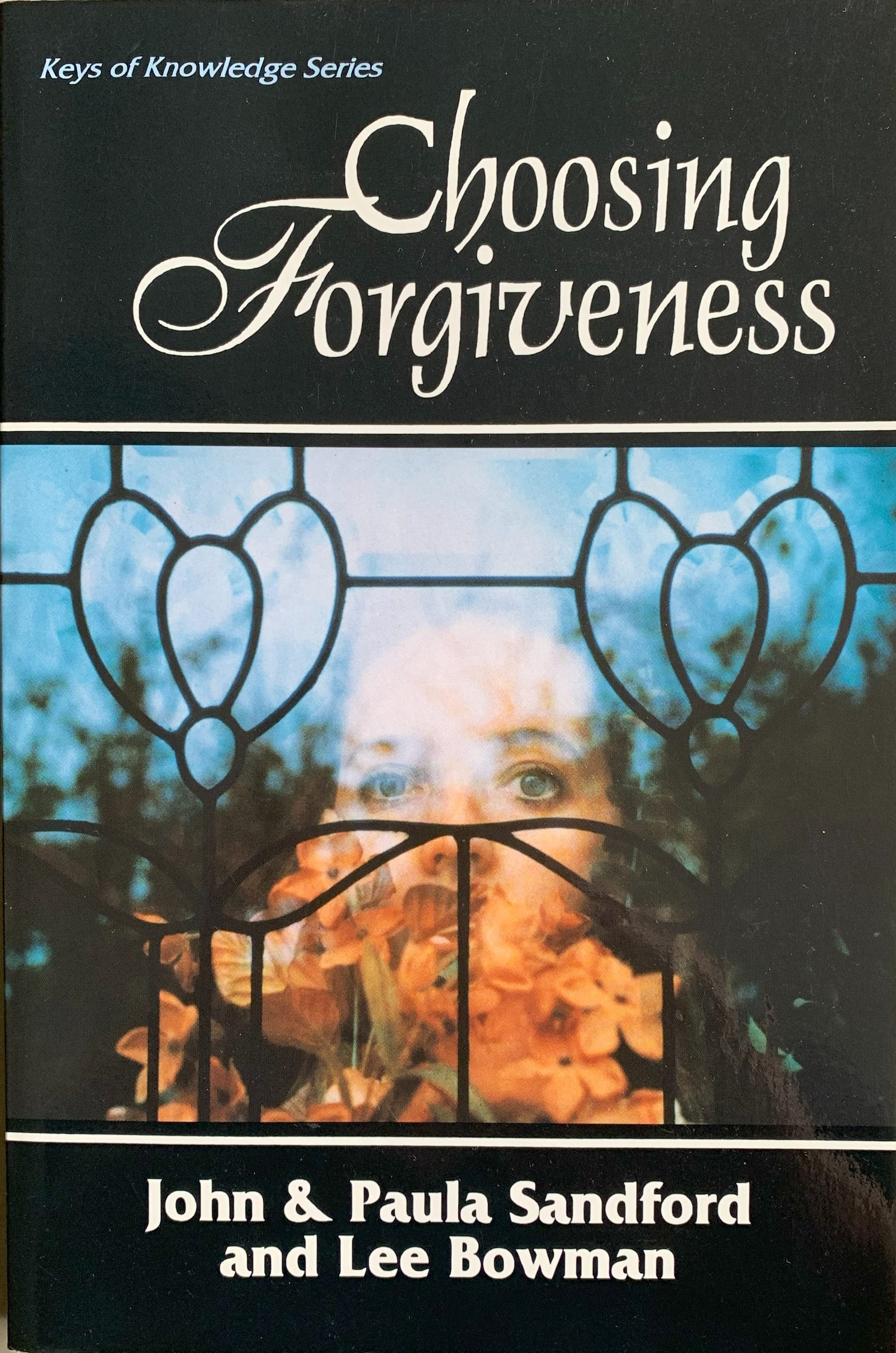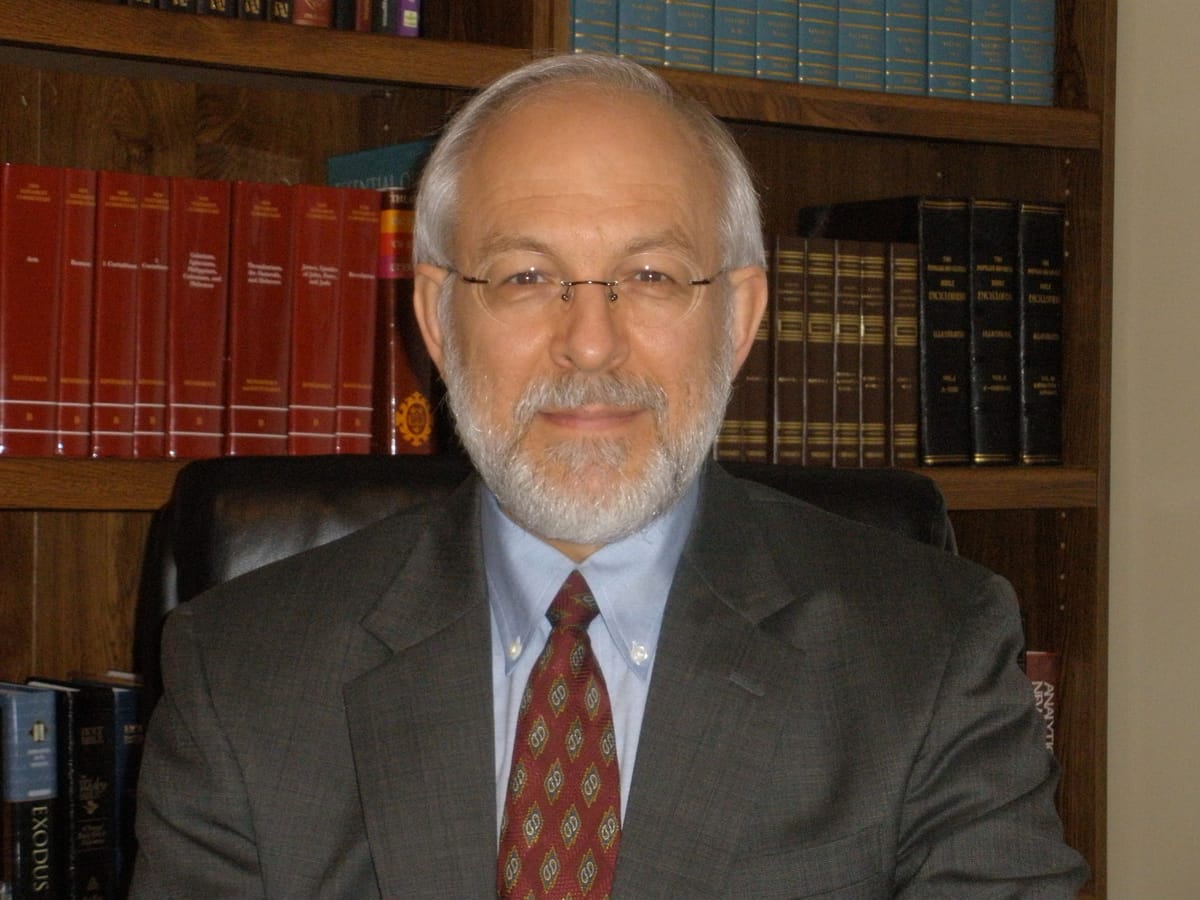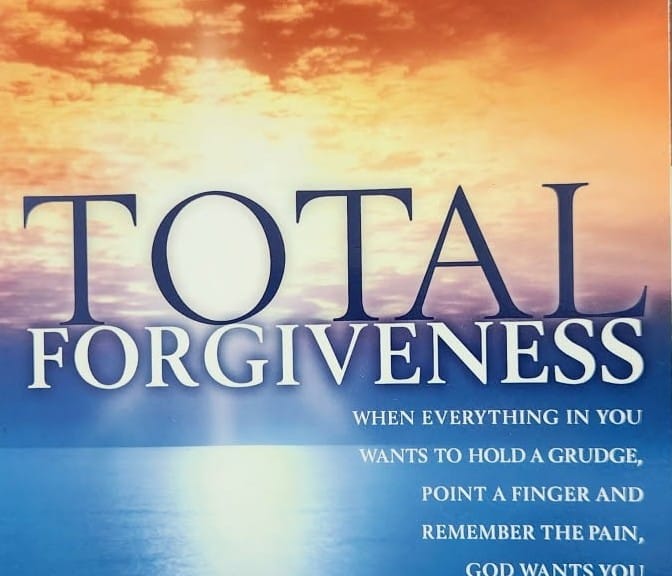We are nearing the final few blog-essays concerning our studies on jubilee forgiveness. We have shared with you the principles of jubilee forgiveness. More recently we have discussed two of seven tips on how to practice jubilee forgiveness. We continue from that point.
Before we go on, however, I want to give credit where credit is due. I have stated that I would not be drawing any material for this series from the book, Choosing Forgiveness, which we made available to readers for many years. But in fact I have not looked at it for any support in this series. Nevertheless, we continue to highly recommend it.

Most of you have been in Sunday School classes where a whole quarter or semester is built around studying the material in one book. When I began this series I had numerous resources available on the subject of forgiveness, and it was not my intent to focus on any one book.
But then I found this book called Total Forgiveness. Actually, when I read the two separate Forewords and the Preface, I was gagging so badly from what I was reading to that point, that I nearly trashed the book.
But I learned that not only should we not judge a book by its cover (although there are often exceptions), but sometimes we should not even judge a book by its Preface either!
In this case, the Lord compelled me to keep reading and I was so blessed by it that several parts of the series have been somewhat based on this book. We do not carry the book, but for your information, it was written by R. T. Kendall.
Pastor Kendall was born in Ashland, Kentucky, and had the honor of being the pastor of Westminster Chapel in London for 25 years. To the best of my knowledge he is still alive at age 89.
All of the ideas for the enumerated items in the past few blogs come from this book, and then I have added my own thoughts and illustrations to those of Pastor Kendall.
3.) The third rule for practicing jubilee forgiveness is this: “We will want our offenders to forgive themselves and not feel guilty.”
We turn once again to our premier Old Testament example of a jubilee forgiver, Joseph.
Genesis 45:4 And Joseph said unto his brethren, Come near to me, I pray you. And they came near. And he said, I am Joseph your brother, whom ye sold into Egypt.
5 Now therefore be not grieved, nor angry with yourselves, that ye sold me hither: for God did send me before you to preserve life.
Look at verse 5 very closely. What did Joseph recognize about his brothers? It was that either they already were, or they were going to be grief-stricken and angry—with Joseph? No, with themselves for what they had done. They were exceedingly remorseful.
In this case, they were probably so sorrowful and repentant over what they had done that they could hardly speak the words. Readers and listeners who have heard our 30-lecture series on Joseph the Overcomer will recall from our readings in the book of Jasher how it showed their repentance long ago.
So Joseph is not dealing with unrepentant offenders here, but God is giving this situation in the Holy Writ so that we can learn another very important aspect of forgiveness; one which we discussed previously; namely, the importance of forgiving ourselves. Let’s address that further.
Does God want us to hate our enemies, our offenders? My Bible says that Jesus said “but I say unto you, love your enemies.” So we are not to hate others, but do you think that extends to ourselves? I agree.
When we do not forgive ourselves, it is actually self-loathing, self-hatred. Clearly, we must learn to forgive ourselves. So what are some of the reasons that we may not have forgiven ourselves?
One reason is that we feel guilty even though we confessed the sin. Well, let’s be sure we understand the purpose of guilt and that will clear the way so that we can forgive ourselves. Guilt has to do with responsibility for wrongdoing. When we keep a record of the wrongs of others, we are attributing blame to them.
We are assigning to them responsibility for sin. When we feel guilty ourselves, it is because we are keeping a record of our own wrongs. Guilt is a good thing when it serves the purpose for which it was designed. And what is that purpose?
Guilt is the method the Holy Spirit uses in order to convict us of sin, that is, to bring our sins to our conscious attention. Once we are aware of them, we should immediately confess them. My friends, either 1 John 1:9 is true or God is a liar. It says:
1 John 1:9 If we confess our sins, he is faithful and just to forgive us our sins, and to cleanse us from all unrighteousness.
When you confessed whatever sin it was that you still feel guilty about, if your confession was sincere, then simply trust God that you are forgiven. Grab hold of that forgiveness which the Creator of the universe has declared is accomplished.
Do you take Him at His word or not? To believe is a gift from God, and if you don’t think you have it, then simply ask Him for it, and He will not refuse. He wants you to have it; take it!
Moreover, receive His forgiveness with gladness. It is a done deal! So thank Him for it. Praise Him for it! Keep doing that until your consciousness is saturated with the fact that you are forgiven. No more guilt.
If after all that, the guilt comes back, what then? Well, then I would say that you are keeping this mental scorecard, whether it’s a group of mental index cards or if you imagine it as a kind of paper ledger sheet in your mind where you keep a record of your own wrongs.
You may have to do as I had to do with my human father about thirty years ago. I had to come to a place where I tore up that ledger sheet. Where all his offenses, the sins, the debits that I believed he owed me, where those debits were not only erased, but the ledger sheet itself no longer existed. I had to visualize that scorecard, that ledger sheet being torn up and destroyed. Then I was released from unforgiveness towards him.
So in quick review, how do we forgive ourselves? First, by recognizing the purpose of guilt. Secondly, by confessing the sin to God. Thirdly, by accepting God’s forgiveness of you, accepting it with an open heart. Fourthly, by not keeping a record of our own wrongs.
Now, that doesn’t mean that we don’t remember them and learn from them. It means we don’t continually beat ourselves up over them. If we continue to keep a ledger of our own mistakes, that means we will always feel that we have this mountain of debits (debts) which we must somehow balance out by our own righteousness or good deeds.
We will never be able to do that. Now, I’m not talking about restitution here. I’m talking about the fact that our good deeds can never make up for and balance out our sins. Only the blood of Jesus can and did accomplish that. When we feel that we have to punish ourselves, then we are, in effect, believing that Jesus’ blood was not enough. We are then, in effect, competing with the atonement. Yikes!
We recall from church history that back in the 4th and 5th centuries, some monastic orders began the practice of self-flagellation. They made whips and these monks would go to their cells and they would take off their robe and whip themselves over the back until they were bloody. All the while they were thinking and believing that such practices would somehow help atone for their sins and earn them brownie points with God.
If I am not mistaken, I believe there are still a couple of monastic orders which practice self-flagellation. Their motives may be honest, but they are honestly mistaken in their understanding of God’s mercy and grace. Remember the definitions. Mercy is applied when we do not get something we actually deserve—which is punishment for our sins. And grace is getting something we don’t deserve—which is blessings.
So when people think they have to punish themselves for their sins, by whatever means it is: by self-flagellation, by fasting, praying rosaries, whatever; they are failing to believe that Jesus’ blood was sufficient not only for their sins, but for those of the whole world.
By the way, I condemn self-flagellation because I can see no other reason why people would do it; but I do not condemn fasting in general because many people do it for health reasons and that is a very good thing. It can even have spiritual effects as the temple, the body is cleansed; but to do it as atonement for your sins is flat-out wrong, a sin in itself because it is effectively denying the atonement of Christ. Are we clear on that?
Another sign that we have possibly not forgiven ourselves is when we have difficulty forgiving others. Actually, it is a paradox. I believe that to the degree to which we refuse to forgive others, the more we will be unable to forgive ourselves.
By the same measure, the more we refuse to forgive ourselves, the more difficult it will be to forgive others. To experience the joy of jubilee forgiveness, both must happen and I think they happen together.
All of this discussion about forgiving ourselves has been under the third rule for practicing jubilee forgiveness, which is: “We will want our offenders to forgive themselves and our offenders to not feel guilty.”
But let’s not forget that last part. If we are true jubilee forgivers, we will not want our offenders to feel guilty. I have had in my files for some years this clipping of a letter to the editor. The date and newspaper are irrelevant.
Although this incident occurred before some of our younger readers were born, it still serves the purpose as an illustration regarding forgiveness. Do you remember the incident when ice skater Tonya Harding apparently had some thugs attack her competitor Nancy Kerrigan? Well, this letter is headlined “Tonya Harding’s TV plea for forgiveness fails to thaw Nancy Kerrigan.”
It reads QUOTE: I watched the Olympics in 1994 and remember the turmoil associated with the attack on figure skater Nancy Kerrigan. I remember Kerrigan’s poor sportsmanship after she was beaten by Oksana Baiul.
Last week, as I watched the special on Fox about the stars of women’s figure skating and the much-awaited interview of Kerrigan and Tonya Harding, I could not help but remember the 1994 comments about Baiul as much as, if not more than, the attack.
Kerrigan said in the interview the attack was in the past, she has started a new life with her husband and child and she doesn’t think of the attack every day. However, when she was asked about forgiveness and whether she could find it in her heart to forgive Harding, the same coldness and inappropriate attitude returned.
Yes, Kerrigan was hurt; there is no doubt about that. Yes, Harding, while she denies knowing about the planning of the attack, played a part in it. However, the difference is in their lives since 1994. Kerrigan has succeeded where Harding has failed. Harding not only has to face the fact she obstructed justice, but she also lost her friends in the sport and the career it took years to build.
Don’t get me wrong; I am not pleading Harding’s case or claiming she is a victim. But when Harding asked to be forgiven and indicated she is sorry for what had occurred, Kerrigan forgot her own words spoken earlier about moving on with her life and showed the same lack of compassion and sincerity that has become her trademark.
The ice around Nancy Kerrigan’s heart and her attitude thawed not one bit. Although my family and I watch almost every figure-skating competition broadcast on television, I lost some respect for Kerrigan following her comments after the 1994 Olympics. What little respect I had left is gone following her joint TV appearance with Harding.
Not only do I feel sorry for Tonya Harding and the role she played, not to mention the waste of her talent, but I also feel sorry for Nancy Kerrigan. She has, once again, shown me why I was happy she did not win the gold medal in 1994 as she certainly is not the ideal athlete and does not exemplify the spirit or sportsmanship that should be embodied in every Olympic athlete.” ENDQUOTE
I feel sorry for them both, too, don’t you? Nancy is withholding forgiveness from Tonya, why? Because she is angry and bitter and wants Tonya to continue to feel pain, and so if she can continue to make her feel guilty, that’s what she wants to do. I feel sorry for Nancy because she is stuck in anger and bitterness.
I feel sorry for Tonya, too, because of her very public sin against Nancy and her missed opportunities that the letter-writer alluded to. But on the other hand, Nancy’s unforgiveness is in turn presenting Tonya with a golden opportunity to practice jubilee forgiveness herself. Tonya is being hurt and offended by Nancy’s unforgiveness and so that gives Tonya a chance to forgive Nancy. Will she? We may never know. Now back to Joseph.
(To be continued.)
~END~




